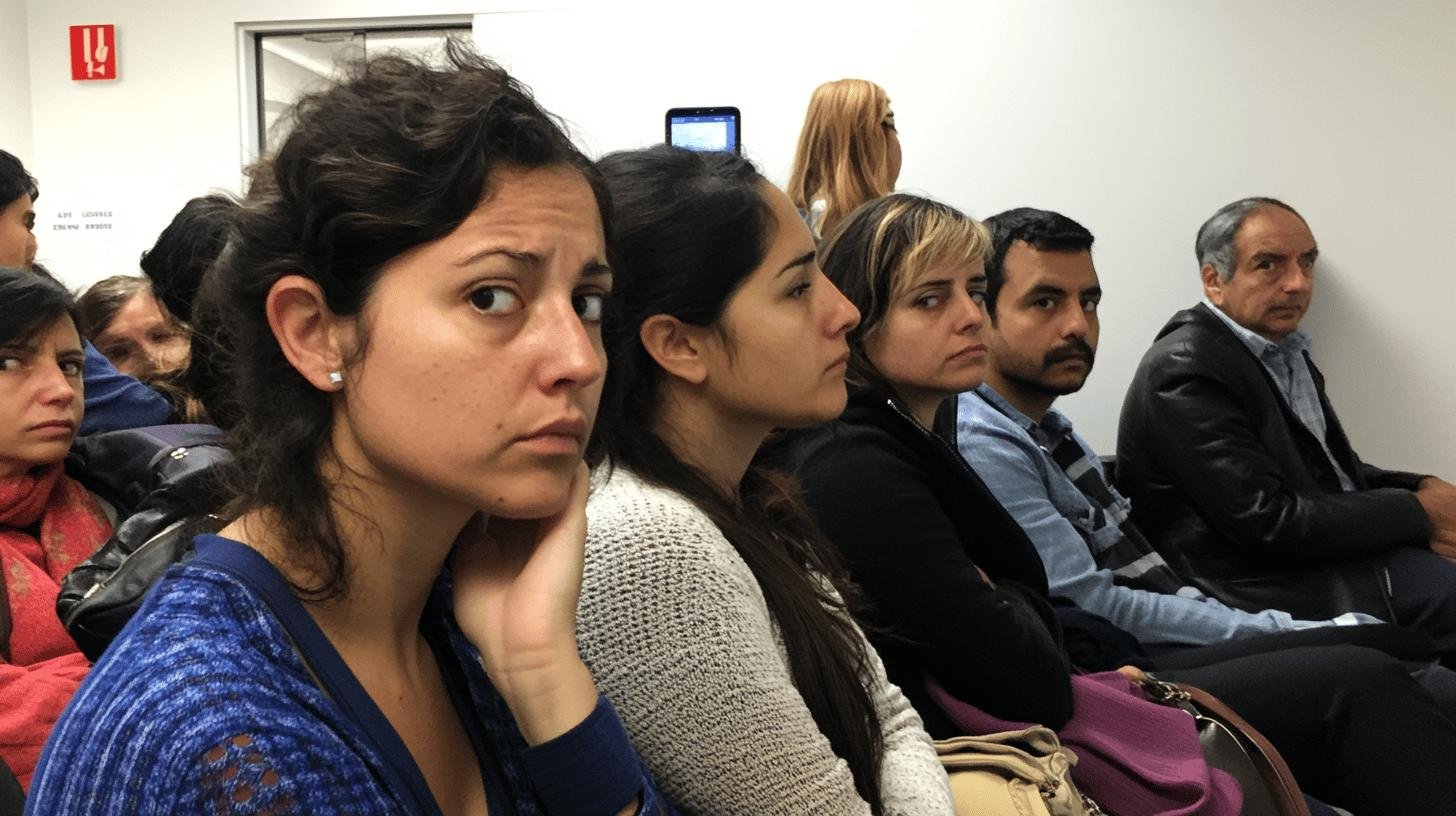TL;DR:
- Importance of Healthcare Access: Essential for disease prevention, improves health outcomes and reduces hospital visits.
- Benefits: Better disease management, stronger patient-doctor relationships, lower costs, increased productivity, and improved quality of life.
- Barriers: High costs, transportation issues, and discrimination hinder access.
- Impacted Groups: Rural populations face long travel, minorities encounter discrimination, and low-income families suffer from shortages.
- Improvement Strategies: Expand insurance coverage, boost telehealth, invest in mobile clinics, enhance public education, and promote cultural responsiveness.
- Economic Impact: Accessible healthcare leads to increased productivity and reduced healthcare costs; supports public health through lower morbidity and mortality rates.
Have you ever wondered why access to healthcare is the cornerstone of a happy society? It’s like having a sturdy umbrella in a rainstorm—vital for keeping everyone dry and healthy. When we talk about “Why Is Healthcare Access Important for Society’s Well-being,” we’re diving into how having that access keeps illness at bay, like a hero wearing a cape. Access to quality healthcare doesn’t just save lives; it builds trust and relationships with providers, helps manage illnesses, and stops potential health issues in their tracks. Ready to explore the ripple effects of this crucial public need?
Why Healthcare Access Is Crucial for Society
Healthcare access is the backbone of a healthy society. It plays a vital role in ensuring everyone gets the care they need. This isn’t just about treating illnesses but also about preventing them. Regular doctor visits help individuals catch issues early, manage conditions better, and prevent them from worsening.
Having access to healthcare significantly improves health outcomes. Imagine regular check-ups, early diagnoses, and timely treatments, keeping diseases at bay. It’s like getting a head start in a race. By addressing potential health issues early, healthcare access aids in disease prevention and management. This proactive approach leads to fewer hospital visits and a healthier population.
Here are some benefits society gains from accessible healthcare:
- Better disease management: Regular check-ups catch problems early.
- Stronger patient-doctor relationships: Trust leads to better care.
- Lower healthcare costs: Preventive care is cheaper than emergency care.
- Increased productivity: Healthy people work better.
- Improved quality of life: Healthier people enjoy life more.
Conversely, limited healthcare access can cause serious public health issues. In communities where healthcare is scarce, morbidity and mortality rates rise. More people get sick and don’t recover as they could. Ensuring healthcare access for all is desirable and essential for society’s well-being and public health.
Barriers to Healthcare Access and Their Effects

Healthcare access isn’t just a simple door to walk through—it faces significant barriers. Let’s discuss the top three: financial, transportation, and discrimination hurdles. High healthcare costs hit low-income families hardest. It’s often a choice between rent or medical care. Then, there are transportation issues affecting millions annually. Especially in rural areas, reaching a doctor can be challenging without proper transport. Lastly, discrimination based on gender, race, or religion makes patients feel unwelcome, discouraging them from seeking help.
Financial Barriers
Why are healthcare costs problematic? They’re expensive, leaving many without coverage or forcing skipped treatments. Imagine being ill and unable to afford a doctor. High costs become a barrier, preventing needed care. Insurance issues add another hurdle, with gaps and high deductibles making access difficult for some.
Transportation Barriers
Trying to see a doctor without transport is tough, especially in rural areas. With doctors miles away and limited public transport, attending appointments becomes a quest. It’s not just the distance—it’s missing essential care due to difficulty in reaching it.
Discrimination in Healthcare
Feeling ignored at a doctor’s visit can be due to discrimination. Bias based on gender, race, or religion makes patients distrustful. When many feel dismissed by doctors, it’s a problem. Such environments aren’t just uncomfortable; they deter people from seeking needed care.
These barriers worsen health outcomes, leading to more sick days and higher mortality rates. They don’t just affect individuals but also impact community well-being on a large scale.
Real-World Examples of Healthcare Access Disparities
Living in rural areas can isolate you from healthcare. Long travel distances, fewer doctors, and poverty make getting care challenging. Imagine needing a specialist hours away. This is a reality for many Americans, making healthcare difficult to access and resulting in poorer health.
Minorities face unique healthcare challenges. Discrimination worsens the situation, discouraging people from seeking help. When many feel dismissed by doctors, trust becomes an issue. This isn’t only about race or ethnicity; it’s about a system that is sometimes closed off, causing delayed treatments and worse health outcomes.
| Affected Group | Barrier Type |
|———————–|———————–|
| Rural Populations | Long Distances |
| Racial Minorities | Discrimination |
| Low-Income Families | Physician Shortages |
Strategies to Improve Healthcare Access

Why are systemic changes and policy reforms crucial for better healthcare access? They address root causes, breaking down barriers like high costs and lack of infrastructure. Systemic changes involve rethinking healthcare delivery, making it affordable and accessible. Policy reforms can reduce the number of uninsured and make systems inclusive. By focusing on healthcare structure, we can create an equitable system.
- Expand insurance coverage: More coverage reduces uninsured individuals.
- Boost telehealth services: Connect patients and doctors remotely.
- Invest in mobile clinics: Bring care to communities.
- Enhance public education: Inform society about healthcare options.
- Promote cultural responsiveness: Tailor care to diverse communities.
Government and healthcare organizations play key roles. They implement policies to expand insurance and fund initiatives like telehealth. Healthcare organizations can improve cultural responsiveness and educate the public. Together, these efforts can make healthcare more accessible and equitable, ensuring everyone gets the care they need, regardless of background or location.
The Role of Healthcare Access in Economic and Public Health Outcomes
How does healthcare access affect the economy? It boosts productivity. When healthcare is accessible, people miss work less due to illness. Healthy employees mean fewer sick days, which increases workplace efficiency. Plus, preventive care and early treatment lower healthcare costs. Treating issues early is cheaper than handling emergencies.
Now, let’s consider public health. Accessible healthcare reduces morbidity and mortality. Regular visits to doctors allow early disease detection, better chronic condition management, and longer lives. This access leads to healthier communities, and better health for individuals strengthens society.
Improving healthcare access makes the system more resilient. It handles patient needs more effectively, adapting to change without breaking down. Fewer people use ERs for non-emergencies, putting less strain on emergency services. This adaptability is vital for a strong, efficient healthcare system that serves everyone well.
Final Words
Recognizing why healthcare access is important reveals its essential role in improving public health and overall societal well-being. We’ve seen how access strengthens disease management, enhances health outcomes, and lowers mortality rates. Yet, barriers like cost, transportation, and discrimination persist, affecting many, particularly minorities and rural residents.
Addressing these obstacles can transform access, making healthcare more equitable. Strategies like expanding insurance, telehealth, and cultural sensitivity can bridge these gaps. With improved access, we pave the way for healthier communities, underscoring healthcare’s extensive benefits and importance for all.
FAQ
Why is healthcare access important?
Access to healthcare allows individuals to build beneficial relationships with healthcare providers, manage illnesses effectively, and prevent conditions from worsening. It’s a fundamental element that helps improve overall health outcomes in society.
What are the effects of lack of access to healthcare?
The lack of access to healthcare can lead to higher morbidity and mortality rates, as individuals may miss early diagnosis and treatment. This can also result in worsening of chronic conditions.
Why is patient access important in healthcare?
Patient access is vital because it ensures timely delivery of healthcare services, enhances illness management and prevents critical conditions, ultimately improving patient satisfaction and health outcomes.
What causes lack of access to healthcare?
High costs, transportation barriers, and discrimination are significant factors that limit healthcare access. These barriers can prevent individuals, especially in vulnerable groups, from receiving necessary medical care.
How is access to healthcare defined?
Access to healthcare refers to the availability and ability of individuals to obtain necessary medical services, encompassing financial, geographic, and cultural factors that influence the utilization of healthcare.
How does access to healthcare impact public health?
Improved access leads to better public health outcomes by reducing disease prevalence and mortality rates. Limited access can cause untreated health issues, affecting community well-being.
What are some examples of disparities in healthcare access?
Disparities can be seen in rural areas with physician shortages and in minority groups experiencing discrimination, leading to reluctance to seek care and thus impacting health outcomes.
What are the benefits of healthcare access?
Healthcare access provides numerous benefits, including improved disease prevention, early diagnosis, better treatment outcomes, enhanced patient-provider relationships, and increased societal health.
What strategies can improve access to healthcare?
Strategies include expanding insurance coverage, increasing telehealth services, investing in mobile clinics, enhancing public health education, and fostering cultural responsiveness in healthcare practices.
Why is healthcare so important to our society?
Healthcare is crucial because it directly influences the quality of life through disease prevention, effective illness management, and overall individual and communal health enhancement.

